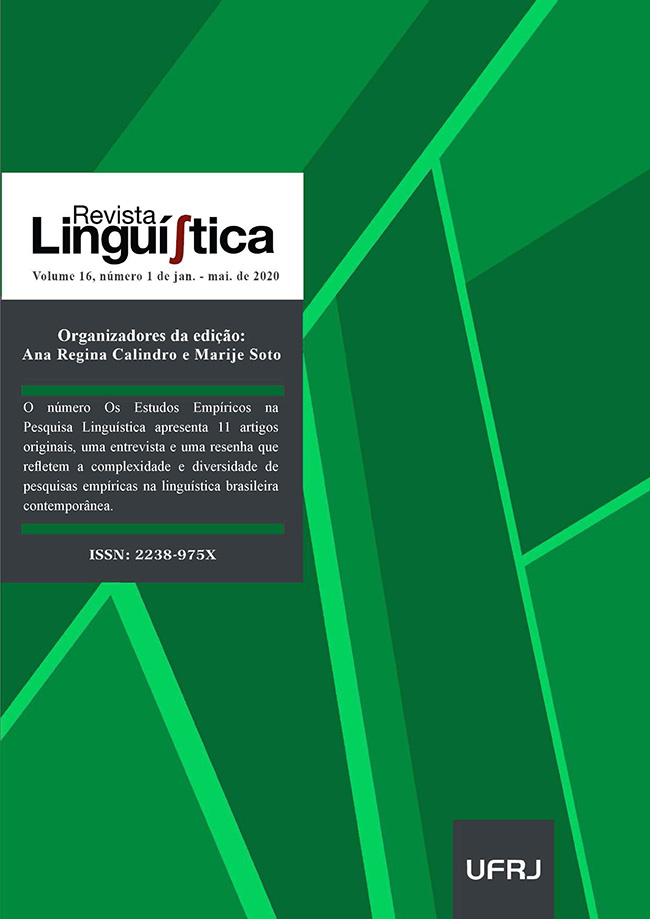Stereotypes in gender agreement in professions: effects of frequency and salience
DOI:
https://doi.org/10.31513/linguistica.2020.v16n1a31637Keywords:
Grammatical gender, Stereotypes, Salience, Frequency.Abstract
Gender marking in Portuguese can be binary (‘o aluno’/‘a aluna’ – ‘the.MASC student’/‘the.FEM student’) or by syntatic process of agreement, like in profession naming by common gender nouns (‘o falante’/ ‘a falante’ – ‘the.MASC speaker’/‘the.FEM speak’). The distinction of gender marking on these nouns results from the speakers' experiences with shared stereotypes: due to the lack of grammatical information of gender in these names, the speakers create mental representations based on stereotypes that are affected by frequency and salience, features that also affect grammar. To identify the relationship between stereotypes and gender marking, an experimental study of judgment was carried out considering the effect of masculinity and femininity on the common gender nouns in Brazilian Portuguese. The results indicate that, although being common gender nouns, the manner in which the profession was presented to the participants interfered with the result, revealing the salience effect. The prototypical frequency of the profession interfered positively in the rating. In conclusion, the characteristics of gender stereotyping, as measured by salience and frequency, interfered in the rating of profession naming in terms of their gender for common gender nouns.Downloads
Downloads
Published
Issue
Section
License
Authors who publish in the Revista Linguí∫tica agree with the following terms:
The authors maintain their rights, ceding to the journal the right to first publication of the article, simultaneously submitted to a Creative Commons license permitting the sharing with third-parties of published content as long as it mentions the author and its first publication in the Revista Linguí∫tica.
Authors may enter into additional agreements for the non-exclusive distribution of their published work (for example, posting in online institutional or non-profit repositories, or book chapters) so long as they acknowledge its initial publication in the Revista Linguí∫tica.

The journal Revista Linguí∫tica is published by the Post-Graduate program in Linguistics of UFRJ and employs a Creative Commons - Attribution-NonCommercial 4.0 International (CC-BY-NC).









